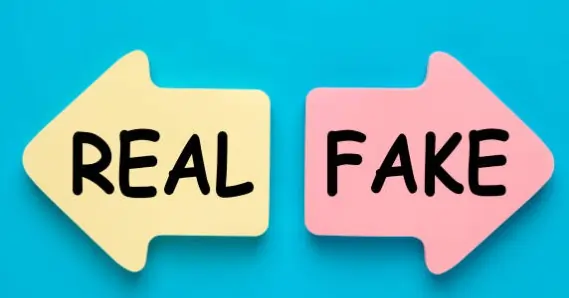Online gambling has rapidly evolved over the past two decades, becoming a multibillion-dollar industry attracting millions worldwide players.

From online poker rooms to virtual slot machines and live dealer tables, the variety and convenience of online gambling have made it a preferred option for many. However, with the growth of this digital industry comes skepticism: Is online gambling real or fake?
Are these online platforms trustworthy, or are they simply digital traps designed to take your money?
In this investigative article, we’ll explore the world of online gambling, its legitimacy, the risks involved, and how to protect yourself from scams.
ADVERTISEMENT

🎰 The Reality of Online Gambling
The simple answer to the question, “Is online gambling real?” is yes, online gambling is real and legal in many parts of the world. Reputable online casinos, sportsbooks, and poker sites operate in highly regulated environments.
In countries where online gambling is legal, such platforms are licensed by gambling authorities such as the UK Gambling Commission, Malta Gaming Authority, or Curacao eGaming.
These regulators ensure that online gambling platforms comply with strict rules regarding fairness, transparency, and player protection.
How Legitimate Online Gambling Works
Legitimate online gambling platforms use Random Number Generators (RNGs) to ensure that the outcome of each game, whether it’s a spin on a slot machine or the deal of cards in poker, is entirely random and fair. RNGs are regularly tested by independent auditors to prevent manipulation or cheating.
Moreover, trusted online casinos use encryption technology to protect players’ financial transactions and personal information. This adds an extra layer of security, ensuring that your data and money are safe.
Many well-known companies operate legitimate online gambling platforms, including major brands such as PokerStars, 888 Casino, and Bet365, which have established themselves as industry leaders.
💻 The Dark Side: Fake Online Gambling Sites
While many online gambling platforms are legitimate, there is a dark side to the industry. Fake or fraudulent online casinos do exist, and they prey on unsuspecting players. These sites are often designed to look professional, offering bonuses and incentives that seem too good to be true—because they often are.
Here are some common tactics used by fake gambling websites:
1. Rigged Games
Fake online casinos may use rigged games where the outcomes are manipulated in favor of the house, making it nearly impossible for players to win. These sites might claim to use RNGs, but in reality, they may be using algorithms that are not independently audited.
2. Delayed or Nonexistent Payouts
A key red flag is when an online casino takes an unusually long time to process withdrawals or, worse, never processes them at all. Players on these platforms may win large sums, only to find that their winnings are held up indefinitely or that the casino has vanished altogether.
3. Unlicensed and Unregulated
Fake gambling sites often operate without proper licenses or under fake licenses. They are not subject to any governing body’s rules or audits, leaving players vulnerable to fraud.
4. Data Theft and Security Breaches
Illegitimate gambling platforms are often poorly secured, putting players’ personal and financial information at risk. Hackers can target these sites to steal sensitive information, which can lead to identity theft or financial loss.
🧐 How to Spot a Legitimate Online Gambling Site
Fortunately, there are several ways to identify legitimate online gambling platforms and avoid falling victim to scams. Here’s what to look for when choosing an online casino or sportsbook:
1. Licensing and Regulation
The most important factor in determining whether an online gambling platform is real or fake is its license. Reputable online casinos will prominently display their license from a recognized gambling authority, such as the UK Gambling Commission, Malta Gaming Authority, or Curacao eGaming. You can verify the license on the regulator’s official website.
2. Independent Audits
Legitimate casinos have their games regularly audited by independent third parties like eCOGRA or TST (Technical Systems Testing) to ensure fairness. These auditors test the RNGs to verify that games are not rigged and operate fairly.
3. Player Reviews and Reputation
Before joining an online casino, research its reputation. Player reviews, online gambling forums, and watchdog sites like CasinoMeister or AskGamblers are valuable resources for checking the legitimacy of a gambling platform. A solid history of fair payouts and positive user feedback is often a good indicator that a casino is trustworthy.
4. Secure Payment Methods
Legitimate online casinos use secure payment processors, including Visa, Mastercard, PayPal, Neteller, and Skrill. If an online casino offers obscure or untrustworthy payment options, that’s a major red flag.
5. SSL Encryption
Ensure that the online casino uses SSL encryption (look for “https://” in the web address) to protect your personal and financial information. Any site that lacks this encryption is not safe to use.
6. Customer Support
Legitimate online casinos offer reliable customer support via multiple channels, including live chat, email, and phone support. If a casino’s customer service is slow to respond or nonexistent, it could be a scam.
⚠️ The Risks Involved in Online Gambling
Even on legitimate platforms, online gambling comes with certain risks. Players should be aware of the following:
1. Addiction and Problem Gambling
One of the biggest risks of online gambling is the potential for addiction. Because of the convenience and anonymity, it’s easy to lose track of time and money. Many reputable online casinos offer tools like deposit limits, self-exclusion, and session reminders to help players gamble responsibly.
2. Bonus Traps
While bonuses can be lucrative, some online casinos offer misleading or difficult-to-clear bonuses. Always read the terms and conditions of any promotion carefully to ensure you understand the wagering requirements before accepting a bonus.
3. Unsecured Transactions
On fake or poorly managed websites, your personal and financial information can be exposed to fraudsters. Always ensure that the gambling site is properly encrypted and follows strict security protocols.
🏆 Conclusion: Real or Fake?
Is online gambling real or fake? The truth is that online gambling is very real, but like any online industry, it has both legitimate and fraudulent players. By doing your research, sticking to licensed and regulated casinos, and following best practices for online security, you can enjoy the thrilling world of online gambling while minimizing risks.
Always remember: while online gambling can be fun and potentially profitable, it should be approached responsibly. The key is to stay informed, choose trustworthy platforms, and know when to stop.
If you’re new to online gambling, start with reputable platforms and take advantage of the tools they offer for responsible gambling. Play smart, stay safe, and enjoy the ride! 🎲
References
1. UK Gambling Commission
The UK Gambling Commission is one of the strictest regulatory bodies for online gambling, ensuring that all licensed casinos meet high standards of fairness and security. You can verify a casino’s license or learn more about their regulations on their official website.
Website: UK Gambling Commission
2. Malta Gaming Authority (MGA)
The Malta Gaming Authority is a well-respected regulatory body that licenses many online casinos. It ensures player protection, game fairness, and responsible gaming practices.
Website: Malta Gaming Authority
3. eCOGRA
eCOGRA is an independent auditing company that ensures online casinos maintain fairness, transparency, and responsible gaming. Check whether a casino has been certified by eCOGRA for peace of mind.
Website: eCOGRA
4. CasinoMeister
CasinoMeister is a trusted watchdog website that provides reviews, ratings, and information on online casinos. They offer valuable insight into which casinos are safe and which to avoid.
Website: CasinoMeister
5. AskGamblers
AskGamblers is a popular online community that provides reviews, player complaints, and helpful resources for online casino players. It’s a great tool for investigating whether a casino has a solid reputation.
Website: AskGamblers
6. GambleAware
GambleAware is a UK-based organization that provides resources and support for responsible gambling. They offer valuable information on identifying problem gambling and provide self-exclusion tools.
Website: GambleAware
7. Curacao eGaming
Curacao eGaming is a popular licensing authority for online casinos. While not as strict as some other regulators, they still ensure that casinos meet certain standards of fairness and security.
Website: Curacao eGaming
Disclaimer
The information provided of 2online18casino.com in this article is intended for informational and educational purposes only. Online gambling involves financial risk, and outcomes are determined by chance. While efforts have been made to ensure accuracy, it is important to understand that gambling laws, regulations, and the credibility of online gambling platforms may vary by country and jurisdiction. Always verify that any online gambling platform you use is fully licensed and regulated in your location.
Additionally, online gambling can be addictive, and we encourage responsible gaming. If you or someone you know may have a gambling problem, seek help from organizations like GambleAware or your local gambling support services.
By engaging in online gambling, you acknowledge that you are solely responsible for your actions and outcomes. The authors and publishers of this article are not liable for any losses or damages incurred as a result of using this information. Please gamble responsibly.

Abner is an accomplished writer specializing in the gambling niche, with two years of experience crafting insightful articles and guides. His expertise encompasses a broad range of topics, from casino games and sports betting strategies to in-depth analyses of gambling laws and their impacts on the industry.


